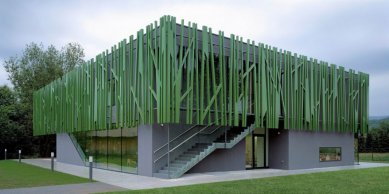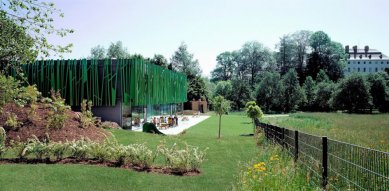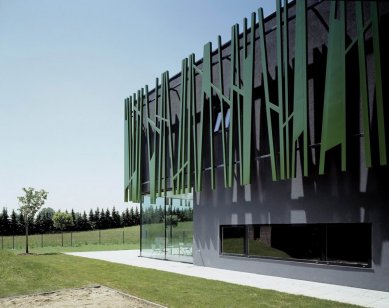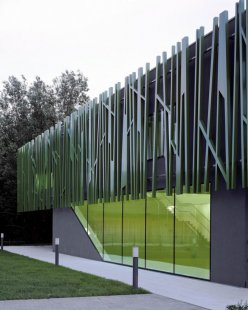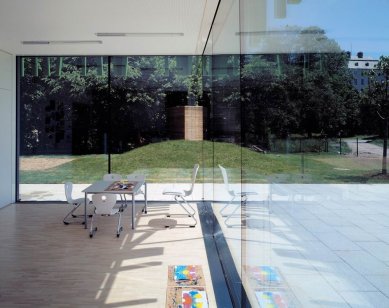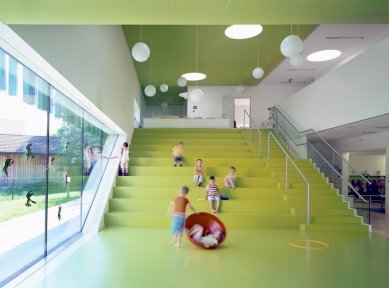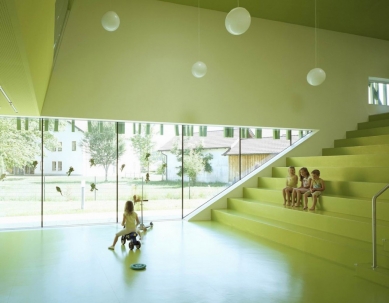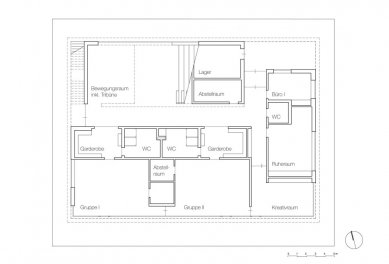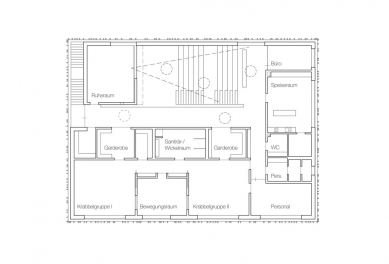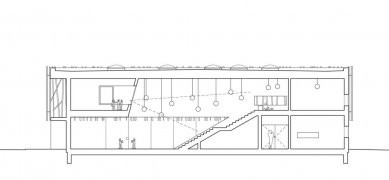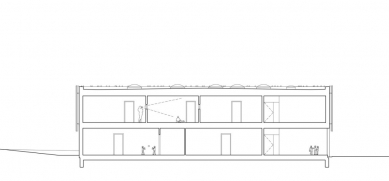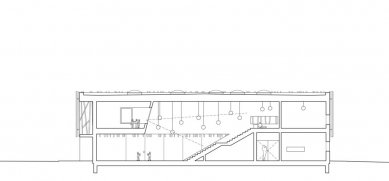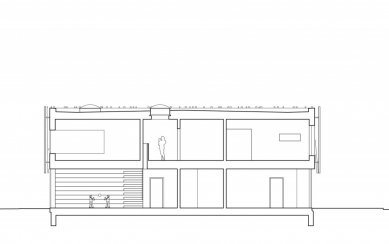
Kindergarten Sighartstein

 |
Situated on the periphery of the site of green meadows and felds, the first impression of the construction site provided the idea for the sculptural facade by way of an elevated grass turf. The oversized “grass blades” communicate the building’s unique identity and provides an orientation marker for the kindergarten. The stylized grass blades are not only ornamental, but also act as a continuation of the landscape theme – namely, the staccato row of spruces visible at the meadow’s edge or the branches of the neighboring leafy trees. The resulting scenic correspondence takes place not only in the building volume itself but also in the structure noticeable from within.
The fat roofed two-story cubic building optimally distributes the functions of a kindergarten. On the ground foor, one fnds the space for the kindergarten groups – with direct access to the garden. The crèche is accommodated in the protected upper story. In the crèche, an expandable third space has been made possible through a planned reallocation of the space.
The core of the building is a multi-functional hall – a communicative center for children and caretakers, used as a junction for various functions: a space for shared activities and an alternative space for bad-weather activities.
Coloring
The space of the kindergarten, over the course of time, will be filled with colorful children’s things, furnishings, materials and first works. Thus, we consciously reduced the color spectrum to the single tone variation of ‘green grass.’
The multi-functional space unfolds itself in the building interior. Various shades of green take up the grass theme to define the individual areas.
The group rooms are lined up along the south side with direct access to the terrace and garden. The group rooms are comprised of two units – each with a wardrobe, sanitation area, and a storage space located in between the hall and the group areas. To the east are additional rooms such as the personnel area, administration, quiet room and mess hall.
Color Concept
As the kindergarten is the first station of education, we have chosen green as the ‘color of life, youth, and spring.’
The psychological workings of the color green play an important role: Green is a color that calms and harmonizes. Green enhances qualities such as helpfulness, endurance, tolerance, and contentedness. In color therapy, green is viewed as a neutral healing color that balances without causing bodily pain or counter-reactions. It creates a space for gathering energy and promotes regeneration. In earlier times, the color was one of the most favored for living rooms and salons. Blackboards in schools are green because the color is easy on the eyes and serves as a contrast to other colors, allowing one thus to better concentrate on the essentials. Green conveys the notion of freshness and youth, but also immaturity. It’s not for nothing that the root of the word ‘green’ lies in the old Dutch word “groen,” meaning grow and flourish.
Green as the stage of childish curiosity: CAN YOU HEAR THE GRASS GROW?! Children learn by playing – and when they can do this in a relaxed atmosphere, quiet and fully concentrated, we lay the foundation for every form of learning later in life, for the concentration that is so essential.
Light + Nature
The floor-to-ceiling glassed-in ground floor invites nature straight into the building by lighting up the group rooms with plenty of sunlight; whereas the window openings of the upper level behind the ornamental facade create a completely different lighting and provide the youngest users of the crèche with an atmosphere of nurturing shelter.
Approval
The feedback thus far from the educators and the community itself has been extremely positive. Since the handover at the end of March, the kindergarten has been used by the children and the hall, including the large free-standing staircase, has been played on extensively – proving that the natural rubber foor covering serves its purpose well. Those who were initially skeptical and critical of the choice of color are now enthusiastic supporters of it, even the municipal director.
Next to the illustrated cardboard house, there are many further illustrative works of how the architectural structure of the house is played with.
4 comments
add comment
Subject
Author
Date
..
..
31.03.11 08:03
otázka bezpečnosti není vůbec řešena
Irena H.
07.04.11 10:18
měřítko???
Petra Šilberská - Atelier Prostory
27.04.11 04:51
schody
vga
28.04.11 07:49
show all comments


